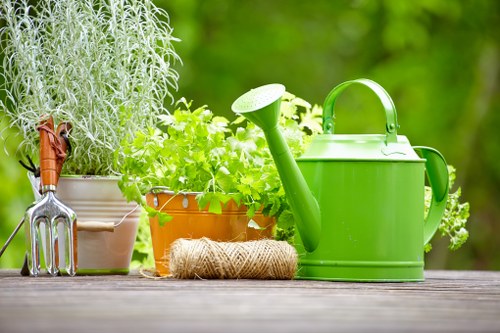Cleaners in Oven Cleaner
Understanding Oven Cleaners

Keeping your oven clean is essential not only for maintaining its efficiency but also for ensuring the food you prepare is free from harmful residues. Oven cleaners play a pivotal role in achieving this cleanliness by effectively removing grease, grime, and baked-on spills that regular cleaning methods might miss.
There are various types of oven cleaners available in the market, each with its unique formulation and method of action. From chemical-based solutions to natural alternatives, choosing the right cleaner can make a significant difference in both the cleanliness of your oven and the longevity of its components.
In this article, we will delve into the different cleaners used in oven cleaners, their benefits, potential risks, and how to choose the best one for your specific needs.
Types of Cleaners in Oven Cleaner

Oven cleaners come in a variety of formulations, each designed to tackle specific types of stains and residues. Understanding these types can help you select the most effective product for your oven cleaning needs.
Chemical-Based Cleaners: These are the most common types of oven cleaners. They often contain strong alkaline substances like sodium hydroxide or potassium hydroxide, which break down stubborn grease and food residues. Chemical cleaners are usually available in aerosol sprays or gel forms, allowing easy application.
Natural Cleaners: For those who prefer environmentally friendly and less harsh alternatives, natural oven cleaners are available. Ingredients like baking soda, vinegar, and lemon juice are commonly used in DIY oven cleaning solutions. These cleaners are safer for both the user and the appliance but might require more elbow grease for tough stains.
Key Ingredients in Chemical Oven Cleaners

Chemical oven cleaners are formulated with powerful ingredients that make the cleaning process efficient. Understanding these components can help you use them safely and effectively.
Sodium Hydroxide: Also known as lye, sodium hydroxide is a strong base that breaks down organic material, making it effective against baked-on grease and food particles. However, it can be hazardous if not handled properly, requiring the use of protective gloves and adequate ventilation.
Potassium Hydroxide: Similar to sodium hydroxide, potassium hydroxide is another strong alkaline component used in oven cleaners. It offers similar cleaning power and safety precautions are equally important when using it.
Natural Cleaning Alternatives

Natural oven cleaners offer a safer and more eco-friendly approach to maintaining your oven's cleanliness. They are typically made from household ingredients that are non-toxic and biodegradable.
Baking Soda: Baking soda is a versatile cleaning agent that effectively absorbs grease and neutralizes odors. When mixed with water to form a paste, it can be applied to the oven surfaces to loosen grime and stains.
Vinegar: White vinegar is another powerful natural cleaner that can help dissolve grease and sanitize surfaces. It is often used in combination with baking soda for a more thorough cleaning effect.
How Chemical Cleaners Work

Chemical oven cleaners work by utilizing their strong alkaline or acidic components to break down and dissolve the tough residues baked onto oven surfaces. Here's a closer look at the process:
1. Application: The cleaner is applied to the interior surfaces of the oven, focusing on areas with heavy buildup.
2. Reaction: The chemical ingredients react with the grease and food particles, breaking them down into smaller, more manageable pieces.
3. Removal: After allowing the cleaner to sit for the recommended time, it can be wiped away along with the dissolved residues, leaving the oven clean and grime-free.
Safety Precautions When Using Oven Cleaners
While oven cleaners are effective, they can be hazardous if not used correctly. Here are some essential safety tips to keep in mind:
- Always wear protective gloves to prevent skin irritation.
- Ensure the area is well-ventilated to avoid inhaling harmful fumes.
- Keep the cleaner away from children and pets.
- Follow the manufacturer's instructions carefully for optimal and safe results.
- Never mix different cleaning agents, as this can cause dangerous chemical reactions.
Adhering to these precautions will help you maintain a safe environment while achieving a spotless oven.
If you prefer a healthier approach, consider using natural cleaners or seek professional cleaning services. Regardless of your choice, regular maintenance is key to preventing buildup and ensuring your oven remains in top condition.
Choosing the Right Oven Cleaner for Your Needs
Selecting the right oven cleaner depends on several factors, including the type of oven you have, the level of cleaning required, and your personal preferences regarding chemical usage.
For heavy-duty cleaning, chemical-based cleaners might be the most effective choice due to their powerful ingredients. However, if you have a preference for environmentally friendly options or have sensitive skin, natural cleaners could be more suitable.
Additionally, consider the ease of use and the application's residue. Some chemical cleaners may leave behind a strong odor, whereas natural cleaners usually have a milder scent.
Top Brands and Recommendations
Several brands have established themselves as leaders in the oven cleaner market, each offering unique formulations to cater to different needs.
- Easy-Off: Known for its powerful performance, Easy-Off offers a range of oven cleaners that effectively tackle tough grime with minimal effort.
- Weiman: Weiman provides both chemical and natural oven cleaning solutions, appealing to a broad audience with varying preferences.
- Method: A favorite among eco-conscious consumers, Method's oven cleaners use plant-based ingredients, ensuring a safe and environmentally friendly clean.
- Mrs. Meyer’s: Combining natural ingredients with pleasant fragrances, Mrs. Meyer’s offers oven cleaners that clean effectively while leaving a fresh scent.
These brands are widely available and have garnered positive reviews for their effectiveness and safety features.
When choosing a brand, consider your specific cleaning needs, budget, and any sensitivities you might have to certain chemicals.
DIY Natural Oven Cleaner Recipes
If you prefer a hands-on approach, creating your own oven cleaner at home is both economical and environmentally friendly. Here are some popular DIY recipes:
- Baking Soda and Vinegar: Mix half a cup of baking soda with a few tablespoons of water to form a paste. Apply it to the oven surfaces, let it sit overnight, and then spray with vinegar before wiping clean.
- Lemon Juice Solution: Combine lemon juice with water and spray the mixture onto the oven walls. The natural acidity helps break down grease, and the pleasant lemon scent leaves your oven smelling fresh.
- Salt and Baking Soda: Mix equal parts salt and baking soda, sprinkle the mixture onto the oven surfaces, and scrub with a damp cloth for an effective clean.
These natural alternatives are non-toxic and safe to use around children and pets, making them an excellent choice for families.
Steps to Effectively Clean Your Oven
Whether you opt for a commercial oven cleaner or a DIY solution, following a systematic approach ensures the best results. Here's a step-by-step guide:
- Preparation: Remove all racks, pans, and any other items from the oven to ensure they don't come into contact with the cleaning solution.
- Ventilation: Open windows and turn on fans to ensure the area is well-ventilated, especially when using chemical cleaners.
- Application: Apply the chosen oven cleaner generously to the interior surfaces, focusing on areas with heavy buildup.
- Waiting Period: Allow the cleaner to sit for the recommended time to break down the grime effectively.
- Scrubbing: Use a non-abrasive scrubber to remove loosened residues, paying extra attention to stubborn spots.
- Wiping Clean: Wipe away the cleaner and residues with a damp cloth or sponge, ensuring no cleaner is left behind.
- Final Rinse: For chemical cleaners, a final rinse with water is advisable to remove any lingering chemicals.
- Replace Racks: Once the oven is completely dry, place the racks and other items back inside.
Maintaining a Clean Oven
Preventing heavy buildup reduces the need for frequent deep cleaning and ensures your oven operates efficiently. Here are some maintenance tips:
Regular Wiping: After each use, wipe down spills and splatters with a damp cloth to prevent them from hardening.
Use Oven Liners: Place oven liners or baking sheets at the bottom of the oven to catch drips and spills, making cleanup easier.
Avoid Excessive Grease: Be mindful of cooking methods that generate a lot of grease, and use appropriate cookware to contain it.
Environmental Impact of Oven Cleaners
The choice between chemical and natural oven cleaners can significantly impact the environment. Chemical cleaners often contain volatile organic compounds (VOCs) that contribute to air pollution, whereas natural cleaners are typically biodegradable and eco-friendly.
By opting for natural or eco-friendly oven cleaners, you reduce your carbon footprint and promote a healthier environment. Additionally, these alternatives are safer for wildlife and water sources, as they don't introduce harmful chemicals into the ecosystem.
Moreover, reducing reliance on commercially packaged cleaners by making your own at home minimizes plastic waste, further contributing to environmental conservation.
Health Considerations When Using Oven Cleaners
Exposure to harsh chemicals in oven cleaners can pose health risks if proper precautions aren't taken. Inhaling fumes or direct skin contact can lead to respiratory issues, skin irritation, and other health problems.
- Protective Gear: Always wear gloves and consider using protective eyewear to shield yourself from splashes.
- Proper Ventilation: Ensure the area is well-ventilated to disperse harmful fumes.
- Follow Instructions: Adhere strictly to the usage guidelines provided by the manufacturer to minimize risks.
- Store Safely: Keep oven cleaners out of reach of children and pets to prevent accidental ingestion or exposure.
For those sensitive to chemicals or with respiratory conditions, natural oven cleaning alternatives provide a safer option without compromising on effectiveness.
Professional Oven Cleaning Services
If DIY cleaning seems daunting or if your oven requires a deep clean beyond your capability, professional oven cleaning services are available. These services employ advanced techniques and equipment to ensure a thorough and safe clean.
Benefits of hiring professionals include:
- Comprehensive cleaning without the use of harsh chemicals.
- Time-saving, allowing you to focus on other tasks.
- Extending the lifespan of your oven by maintaining its components effectively.
- Expertise in handling different oven types and cleaning challenges.
Consider reaching out to a trusted cleaning service if you prefer expert assistance in maintaining your oven's cleanliness and performance.
Contact us today to schedule a professional oven cleaning service and experience a spotless kitchen without the hassle.
Conclusion
Maintaining a clean oven is crucial for both health and efficiency reasons. Understanding the different types of cleaners available, their ingredients, and their appropriate use can help you make informed decisions about how to care for your appliance.
Whether you choose chemical-based products or opt for natural DIY solutions, regular maintenance and proper cleaning techniques will ensure your oven remains in excellent condition, providing optimal performance for years to come.
Remember to prioritize safety by following all usage instructions and considering professional services when necessary. By taking these steps, you can enjoy a clean, safe, and efficient kitchen environment.
Book your service now to keep your kitchen appliances running smoothly and to maintain a healthy cooking space.